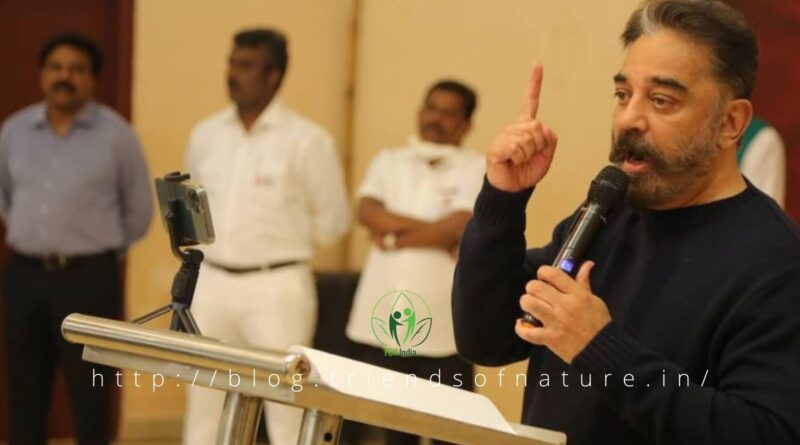Kamal Haasan’s party announces agenda for environment protection
The party intends to create a circular economy, where recycling and reuse would be the norm for water, plastic and e-waste
Establishing a circular economy, enforcing pollution standards, strict groundwater regulations and having an environment atlas are part of the seven-point agenda of the Kamal Haasan promoted Makkal Needhi Maiam (MNM) party. Unveiling the agenda in Salem, where Haasan was stationed as part of his election campaign, he said the party is aiming to strike a balance between industries, agriculture and environment.
Former IAS officer Santhosh Babu and party’s environmental wing state secretary Padmapriya read out the agenda titled ‘Key Pillars of MNM promises on Environment’, which is aimed at establishing a circular economy where recycling and re-use will be the norm for water, plastic, and e-waste.
The agenda also promises to incentivise production of non-plastic alternatives by household industries. Self-Help Groups is another objective of the proposed economy. The party said all pollution monitoring data will be published as a continuous stream through “OCEMS – Online Continuous Emission and Monitoring Systems” as per the Supreme Court directive of 2017.
In order to regulate the exploitation of ground water, the party said it would bring a comprehensive and stringent groundwater regulation for large-scale harvesting of ground water. This will be implemented to safeguard the interests of local communities, farmers and future generations. Wetland rules will be amended to ensure protection of local water bodies like lakes and other waterways.
A statewide environmental atlas will be developed for the industrial sites on the lines of the Central Pollution Control Board (CPCB) siting criteria for industries while encouraging green industries.
According to MNM, “Local Area Environment Committees” involving local community activists, Tamil Nadu Pollution Control Board and District Administration, will be set up in pollution hotspots to monitor industrial compliance of pollution standards.
“Bringing in behavioural change in people for respecting the eco-systems will be instilled through sensitisation,” the party said.
The party had earlier announced its seven-point economic agenda.




